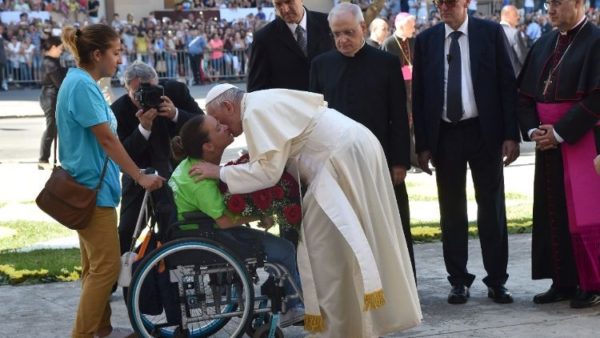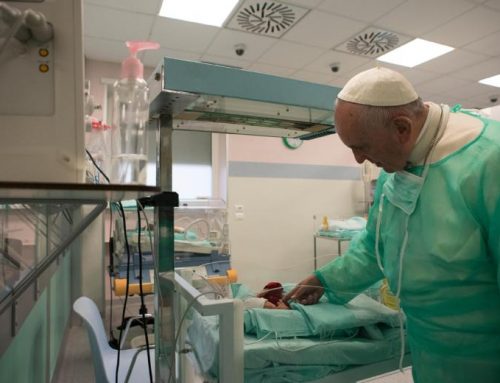Pope Francis, in a message to mark the International Day of Persons with Disabilities, highlights the importance of inclusion and active participation for those with disabilities. He also denounces the throwaway culture that affects the most vulnerable.
By Vatican News
The theme of this year’s International Day of Persons with Disabilities, which is observed this 3 December, is “Building Back Better: Toward a Disability-inclusive, Accessible and Sustainable post-COVID-19 World.”
With that in mind, Pope Francis, in a message to mark the occasion, said this World Day afforded him the opportunity to express his closeness to those “experiencing situations of particular difficulty during the crisis caused by the pandemic.”
“All of us are in the same boat in the midst of a turbulent sea that can frighten us. Yet in this same boat, some of us are struggling more; among them are persons with serious disabilities,” he said.
Throwaway culture
Focusing on this year’s theme, the Pope commented that he found the expression “building back better” quite striking.
He continued by saying that it made him think of the Gospel parable of the houses built on rock or sand and he took the opportunity to share some reflections based on the parable.
In his message, he spoke of a throwaway culture that is “widespread in our time like the rain, the winds and the rivers that threaten the house in the Gospel passage.”
That culture, the Pope noted, “affects especially the most vulnerable, among whom are persons with disabilities.”
He acknowledged the important steps that have been taken in the last fifty years, both on the civil and ecclesial levels, to promote inclusion of those “experiencing physical and psychological limitations.”
But on the cultural level, he pointed out, “much still stands in the way of this trend.”
“We see it in attitudes of rejection, due also to a narcissistic and utilitarian mentality, that give rise to marginalization that ignores the inevitable fact that frailty is part of everyone’s life,” said Pope Francis.
Consequently, the Pope underlined, “it is important, on this Day, to promote a culture of life that constantly affirms the dignity of every person and works especially to defend men and women with disabilities, of all ages and social conditions.”
Inclusion
Referring to the current health situation, the Pope said the present pandemic has “further highlighted the disparities and inequalities widespread in our time, particularly to the detriment of the most vulnerable.”
For this reason, he stressed, “inclusion should be the first ‘rock’ on which to build our house.”
“Along the road of life,” Pope Francis said, “we often come across wounded people, and these can include persons with disabilities and particular needs.… Each day we have to decide whether to be Good Samaritans or indifferent bystanders.”
“Inclusion,” the Pope emphasized, should be the “rock” on which to build programmes and initiatives of civil and ecclesial institutions “meant to ensure that no one, especially those in greatest difficulty, is left behind.”
Active involvement
In order to help society “build back better,” said Pope Francis, “inclusion of the vulnerable must also entail efforts to promote their active participation.”
“Before all else,” the Pope underlined, “I strongly reaffirm the right of persons with disabilities to receive the sacraments, like all other members of the Church.… No one should be excluded from the grace of these sacraments.”
Pope Francis also highlighted the fact that people with disabilities wish to become active subjects of pastoral ministry, and not simply its recipients. “Our concern should be not only to care for them, but also to ensure their ‘active participation’ in the civil and ecclesial community,” he said.
The Pope added that “the active participation of people with disabilities in the work of catechesis can greatly enrich the life of the whole parish.”
Co-operation
Concluding his message, Pope Francis said, “Even worse than this crisis would be the tragedy of squandering it.”
“For this reason, I encourage all those who daily and often silently devote themselves to helping others in situations of fragility and disability.”
He expressed the hope that a common desire to “build back better” would give rise “to new forms of cooperation between both civil and ecclesial groups and thus build a solid ‘house’ ready to withstand every storm and capable of welcoming people with disabilities, because built on the rock of inclusion and active participation.”
https://press.vatican.va/content/salastampa/it/bollettino/pubblico/2020/12/03/0631/01478.html







